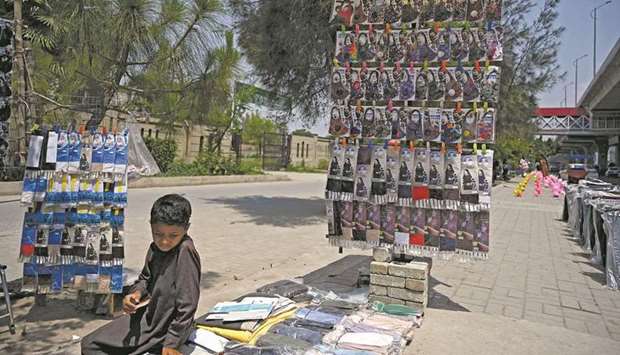Pakistan has closed land crossings with Iran and Afghanistan for travellers and slashed international flights as the government warned of a “critical” few weeks ahead in the battle against the coronavirus (Covid-19).
The border restrictions were announced on Sunday as the country prepared to mark the Eid al-Fitr, which usually sees the mass movement of people between cities and villages as well as the return of migrant workers and overseas Pakistanis for celebrations.
Pakistani officials have anxiously watched the coronavirus crisis unfolding in neighbouring India.
The Civil Aviation Authority said on Saturday that from tomorrow, 80% of flights would be suspended for two weeks, mainly from the Middle East, until mid-May when the Eid holidays are over.
Foot crossings with Iran and Afghanistan would also be sealed, the country’s coronavirus task force said, adding that trade would be exempt.
Flights and land crossings with neighbouring India – reeling from a devastating outbreak with hundreds of thousands of new cases a day – were closed before the pandemic because of political tensions.
Impoverished Pakistan is struggling to contain a third wave of infections, with more than 800,000 cases and 18,000 deaths declared.
Only a small fraction of its 220mn population has been vaccinated.
Planning Minister Asad Umar, who has been leading the government response to the outbreak, said the next two weeks are “critical”, as health authorities rushed to increase intensive care capacity.
Last year, Pakistan saw a spike in cases following Ramadan and the Eid.
Mosques have remained open throughout the month of Ramadan, with few adhering to social distancing guidelines during huge nightly gatherings of worshippers.
Private gatherings, shops and restaurants have faced tight restrictions, with military personnel mobilised to help enforce rules.
The government has also announced a ban on travel between provinces for more than a week over the Eid and imposed closures on hotels and tourist spots.

A boy selling face masks waits for customers at a stall along a street in Rawalpindi.
